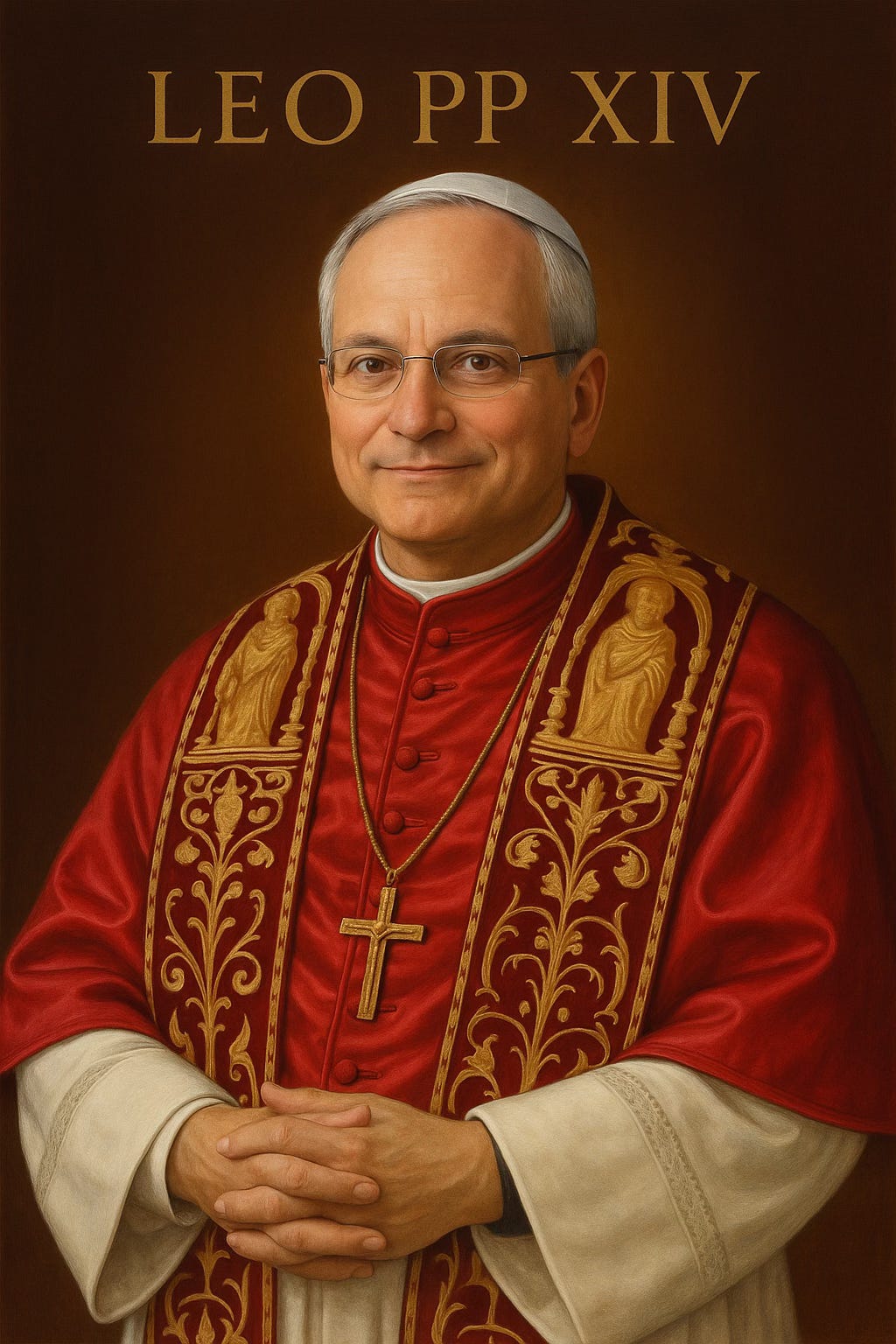The Pope’s First Battle: Why Leo XIV May Be Facing the Most Invisible War in History
From the Sistine Chapel to the Algorithmic Feed, the War Has Moved, and It’s Targeting the Soul
Less than a week ago he was a Cardinal you've never heard of. This past Friday he stood in white stood beneath Michelangelo's Last Judgment in the Sistine Chapel, the leader of the World’s 1.4 billion Catholics.1
During the homily of his first Mass he spoke in plain language.
He didn't reach for relevance or gesture to modernity. He didn't soften the message or try to sell it. He simply stood and declared that Jesus is still the Son of the living God. He spoke of the Gospel, of light and darkness, of Peter and the Ark, of mockery, abandonment, and betrayal. He said the Christian faith is absurd in the eyes of many. He named technology, money, pleasure, and power the modern soul's new comforts.
That was the first homily of Pope Leo XIV.
As I listened to the translator and eventually re-read the complete text, one question refused to let go of me:
Does the Pope understand what kind of war we're actually in?
Because it is war. Not metaphor. Not exaggeration. Not a war of nations, though it has consumed them. Not a war of rockets and bombs, though it leaves bodies behind. This war is quieter and crueler. It is a war for the soul.
It does not dress in uniforms. It wears feeds, brands, stories, and data. It wages itself in silence and overwhelm, in distraction and shame. It is not declared. It is pervasive. It is not obvious. It is immersive.
This is the war McLuhan warned us about.2
World War Three.
The guerrilla information war in which civilian and military participation is unlimited and hard to distinguish.
So I ask again: Does the Pope see it?
Not as a cynic. Not as a pundit. Not even as a loyal son of the Church. But as a man who considers the costs.
Because it's not just about secularism, it's about simulated meaning. It's about engineered despair. It's about machine-crafted stories that pull the soul away from God, not through seduction or rage, but through fatigue. Not through heresy, but through noise.
Even the faithful are weary. Even the brave are breaking. Even the good are unsure if their words matter anymore.
And the worst part? Some like it this way.
I call them the Guardians of Decay. They do not want a world of light. They want chaos and confusion. They want guilt without grace. They want ritual without rescue. They are not anti-God. They are post-truth.
Leo XIV spoke of light. He invoked Peter's confession. He reminded us of who we are and what we're meant to be. Yet the World he inherits is not what it was. It is a feed. A cloud. A contest. A trap.
And the Church he now leads is not simply declining; it is under siege. Not just by ideologies but by systems that erase identity before it can speak. By tools that turn stories into slogans, and by incentives that reward the hollow and punish the luminous.
So again, I ask:
Does the Pope understand what kind of war we're actually in?
Because no other global figure has the flock, the story, or the mandate. No other institution still carries memory in its bones. No other man has the keys.
The World doesn't need a modern pope.
It needs a clear one.
A warrior who understands that the terrain has shifted.
A shepherd who knows the wolves now wear Wi-Fi.
Does he see it all? Will he fight?
Because if the Ark is real, it must sail again.
DISCLOSURE: I am a practicing Roman Catholic. My intent, however, was to write from a religiously neutral perspective, as an observer concerned with the shape and cost of the war we are already in. Though I believe, I also remain open and respectful of Pascal’s wager, not because I question the truth, but because I understand the magnitude of being wrong in a war most still refuse to name.
“World War 3 is a guerrilla information war with no division between military and civilian participation.”; War and Peace in the Global Village by Marshall McLuhan, 1968





The wolves wearing wifi in such a stark image. That needs to be a t-shirt or logo.
Do you think the Reformation period was a similar type of narrative contest, an earlier/proto version, or unrelated altogether to your application of today's 5GW, constant narrative warfare environment?
This was great.